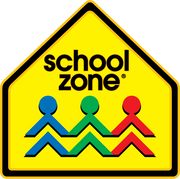Blue skies, warm temps, and lots of pent-up energy mean kids definitely need a break from their structured school routine. But learning can—and should—keep happening.
Change the "how" but not the "what"
Traditionally referred to as "summer slide" or "summer learning loss," skills that students lose or forget over the summer have been a concern for decades. Research on how much is inconclusive, and the factors and variables are many, but it is fairly intuitive that learning brand-new skills and then not using them again for three months will make those newly acquired skills fade, recede, or be forgotten. That's true for everyone. And while we're all eager to put 2020-22 behind us, the fallout in education at every level is still very much being felt.
Learning with a light touch

Summer learning need not be super structured or heavy handed. Working on math, reading, and science skills can take many forms. A little bit "here and there" reinforces skills from last year and readies kids for the coming year.
Here are 10 fun and easy ways to keep kids learning this summer:
1 - Day Camps (academic or outdoor-focused) - Many nature centers and YMCAs and YWCA's offer a wide range of summer programs, usually at very reasonable prices. Some day camps are even accredited by the American Camp Association (ACA).
2 - Overnight Camps - Practically a rite of passage for generations of kids, residential summer camps promote independence, teach teamwork, and introduce a variety of activities that can become lifelong interests. According to the ACA, "Each summer more than 14 million children and adults take advantage of the camp experience."
3 - Online Learning Programs - Engage kids in productive screen time that feels more like play than work. School Zone's Anywhere Teacher online learning program, while geared toward kids 2-8, also includes activities older kids can enjoy too, such as Space Flash Cards, President Flash Cards, and videos that present the water cycle and life stages of a butterfly and an apple tree.
4 - Take-Anywhere Workbooks - Easy to stow in a tent or camper or tuck away in a tote bag, workbooks including Counting 1-10 Preschool Workbook for ages 3-5, Reading Activities Grades 1-2 Workbook for ages 6-8, or Word Search Challenges Workbook and Travel the Great States Workbook for ages 8+. All offer hours of colorful learning activities.
5 - Lessons in Daily Activities - Virtually every shopping trip and cooking or travel-planning session are terrific opportunities to get kids using age-appropriate math, reading, and critical thinking skills. How much does it cost? How far are we going? How long will it take? What does the sign say? How much or how many do we need? It all adds up!
6 - Library Programs - This 2022 website from the Kent District Library, serving greater Grand Rapids, MI, promoting "free fun for all ages"—fun that included scavenger hunts, StoryWalks, parks exploration, and a "30 Day Challenge of reading, reading and STEAM experiments" is just one example of what wonderful summer programming community libraries offer up. Check out what your local library is offering!
7 - Daily Reading Activities - Reading offers so many benefits; it builds vocabulary, empathy, and imagination, and expands a child's overall understanding of the world. But even the most reluctant reader can usually be enticed to try a few words during a Story Walk in a park or on a trail, a few words from an online book, or a sign-reading contest (with a prize, of course!) to be first to spot a particular word or the most instances of a word or phrase.
8 - Daily Math Activities - Math proficiency too, helps build mastery of so many tasks, along with confidence when facing those tasks. Here again, practical questions such as "If everyone eats two slices of pizza, how many will be left?" go a long way toward showing the value of math in low-stress situations unlike quizzes or tests at school.
9 - Homeschool Co-ops - The Homeschool Mom posts a straightforward definition by Jeanne Faulconer, of these resources: "A homeschool co-op is a group of families who meet together and work cooperatively to achieve common goals. Co-ops can be organized around academics, social time, the arts, activities, crafts, service work, or projects—or some combination of these."
10 - Tutoring - Not every child needs tutoring, but if they are truly struggling with a subject, getting some focused one-on-one help over the summer can pay big dividends in the coming school year and beyond, not just to improve skills but also to build confidence.
Add a little SEL to the 3 Rs
Of course, a child's education is about much more than academics. Our kids need to know how to communicate, treat others, and navigate a fast-paced world. Increasingly, we are hearing about the importance of social-emotional learning.
In an opinion piece by Katari Coleman, published a year ago on K12Dive.com, Coleman notes that "Social-emotional learning, or SEL, is essential for managing emotions and problem-solving. It equips an individual with the ability to deal with difficulties that may arise throughout their life and the ability to build relationships and navigate the community they live in."

The Anywhere Teacher online learning program includes Emotions Flash Cards that not only teach little ones how to identify and name their feelings but also how to manage them in healthy ways.
With less exposure to the intense social dynamics that often come with school settings, summertime is an excellent time to practice "what if" role-playing situations and talk about feelings when kids are not in the middle of them, giving them tools for later on.
Summer - the ultimate open floor plan classroom!












